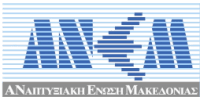
On 25-27 February, the PICOBELLO project, a collaboration of various European partners, met in Barcelona for a workshop to promote sustainability and innovation in the creative economy. The meeting was hosted by the Barcelona Creativity & Design Foundation. This exciting event brought together partners and stakeholders from Poland, Greece, Spain, Latvia, Finland and France to discuss, share and exchange knowledge on the development of creative industries and sustainable practices in line with the values of the New European Bauhaus.
Opening session
The workshop began on the afternoon of 25 February with an open session entitled “Future scenarios for the creative economy”. The creative industries play a dual role – both in terms of creativity and economic growth – and the session aimed to explore how we can boost the sector’s competitiveness. Isabel Roig, Director of Fundació BCD, and Eugenia Marti, Innovation Director of Fundació BCD, welcomed the participants and set the scene for the discussions. A presentation by Laura Clčries, CEO of The Hut Agency, highlighted initiatives to boost the creative economy through design, business and entrepreneurship. This was followed by a roundtable discussion on the role of creativity and technology in shaping the future, with speakers including Jordi Sellas, Cecilia Tham and Andrea Faroppa, leading voices in creative technology and AI.
Partner presentations: Sustainability in practice
An important part of the 2nd day was dedicated to presentations by each partner, sharing regional best practices in sustainability. The focus was on integrating sustainability principles into local economies, urban planning and creative industries. These practices ranged from circular economy initiatives to inclusive urban development models. Then, local stakeholders from Barcelona presented their successful initiatives, such as the “Eduquem+B” green competences programme, the projects “Teixint Superilles” & “Aquí” that focus on transforming urban spaces to promote sustainability and social interaction, as well as related work by IED (European Institute of Design), LCI Barcelona (School of Design and Visual Arts ) and Fab Lab Barcelona-IAAC. The presentations showed how different regions are tackling sustainability challenges and aligning their actions with NEB values, addressing issues such as resource efficiency, waste reduction and clean energy.
Workshops: Design Resilience
The second day’s activities culminated in a workshop on ‘Design Resilience’, led by Anaïs Esmerado of Ojalá Projects. The workshop focused on promoting resilience through design in the face of environmental and social challenges. After an outdoor session to refresh and energise participants, the group walked to the Nest City Lab, a hub for sustainability innovation in Barcelona. There, participants engaged in a case clinic methodology exercise, exploring best practices from previous presentations and brainstorming alternative solutions to complex sustainability challenges.
Study Visits: Innovative solutions in Barcelona
The 3-day workshop also included study visits to leading organisations demonstrating innovative practices in urban development and the creative economy. The first visit was to Barcelona Activa, the city’s local economic development agency, which promotes entrepreneurship and business competitiveness, with a particular focus on creative and cultural industries. Participants learned about the CREAMEDIA programme, which supports new businesses in the creative sector, and the UX Lab, which supports start-ups through user-centred design approaches.
The group then visited Fundació BIT Habitat, a foundation that promotes urban innovation to address the challenges of modern cities. This visit provided insights into the intersection of technology, sustainability and urban development. The final visit was to TMDC, a co-working space where big ideas are transformed into tangible projects. This visit highlighted the importance of collaboration and creative environments in fostering innovation.
Looking ahead
The Barcelona workshop was an inspiring and productive event that not only deepened the knowledge of sustainability practices, but also strengthened the collaboration between the PICOBELLO project partners. The lessons learned from these discussions and study visits will inform future activities and strategies within the project, particularly in relation to the implementation of sustainability in design and regional development.
As the PICOBELLO project progresses, the partners will continue to share their experiences and work together to create more sustainable, inclusive and innovative communities. The next steps include the further development of regional action plans, additional workshops and the preparation of the third semester progress report. The next meeting of PICOBELLO partners will take place in Greece, where the exchange of best practices and collaboration will continue to shape the creative economy and sustainability in Europe.












